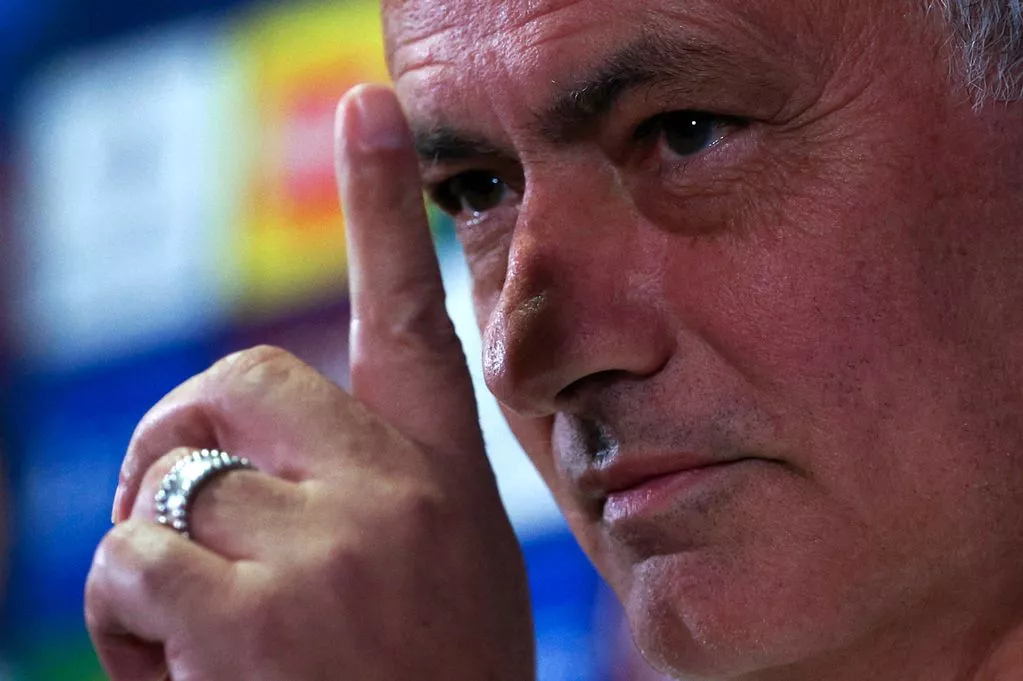Jose Mourinho once again reminded the football world why his words carry weight and wisdom, as he spoke passionately about Newcastle United, Eddie Howe, and the handling of Alexander Isak’s controversial exit last summer.
The Portuguese icon, known for his charisma and sharp football intellect, delivered a memorable appearance in front of the cameras on Monday night, offering deep respect to Newcastle for their resilience during a difficult period.
Isak’s departure caused shockwaves across English football. The Swedish striker had refused to play or train in order to force through his £130 million move to Liverpool.
It left Newcastle in a tough spot short of attacking options and with precious little time to find a replacement before the transfer window closed. For most clubs, such an upheaval could have derailed their season.
But Mourinho believes Eddie Howe and his team handled the crisis with remarkable professionalism and character.

He said, “What happened with Isak in the summer is very difficult for a club, a coach, and the players. But when it’s done, it’s done.
You move on. When a new player arrives, you start to build again, you train, you adapt, and the team evolves because every striker is different. Isak and Nick Woltemade are not the same kind of players.”
Mourinho’s admiration for Newcastle’s response was evident, especially in the way Nick Woltemade has stepped up since arriving.
The young German striker has quickly become a fan favorite, scoring crucial goals and helping fill the void left by Isak’s departure.
With seven goals already this season, Woltemade’s impact has exceeded expectations, showing composure, maturity, and adaptability that belie his age.
“There is always a transition when a major player leaves,” Mourinho continued. “But it looks like this boy, Woltemade, has been playing here all his life. He’s performing, adapting, and loved by the fans. Newcastle are doing things right doing things the right way.”
That kind of praise from Mourinho is not given lightly. The former Chelsea, Manchester United, and Tottenham boss knows what it takes to manage through turbulence and build a team that responds under pressure.
His acknowledgment of Howe’s leadership highlights how far Newcastle have come, evolving into one of the Premier League’s most respected sides both on and off the pitch.
Mourinho also showed his affection for the club and city of Newcastle, a place with which he shares a personal connection.
Early in his career, he worked as an assistant and translator to the legendary Sir Bobby Robson a man revered on Tyneside and whose legacy still influences the club’s identity today. Speaking fondly, Mourinho reflected on what makes St James’ Park such a special place in football.
“It’s a fantastic place to play football,” he said. “People here don’t just watch the game — they live it with the players. It’s not only the stadium, it’s the club, the history, the passion, and the fans. The energy is unique.
The economic power they now have, the quality of the team, the ambition to win trophies, and two consecutive seasons in the Champions League all of that shows how close they are to achieving even greater things.”
He went on to describe Newcastle as a club apart from others in England. “It’s different culturally,” he added. “This region has a soul that’s unlike London or Manchester. I love coming here. Even as an opponent, you feel the warmth, the passion, and the intensity. It’s beautiful. I told my players enjoy it, because it’s a special place to play.”
As Mourinho prepares his Benfica side to face Newcastle in the Champions League, his words carry both admiration and respect.
His praise serves as a reminder that under Eddie Howe, Newcastle have not only rebuilt but redefined themselves a club once in turmoil now thriving on unity, belief, and the relentless energy of their supporters.
The Isak saga could have been a breaking point, but instead, it became a turning point. In Mourinho’s eyes, that’s what makes Newcastle United stand out their ability to turn challenges into strength, and their refusal to lose sight of who they are.
